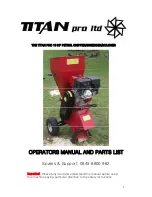
Do not operate the air conditioner with a wet hand.
An electric shock may happen.
Do not touch the heat exchanger fins.
These fins are sharp and could result in cutting injuries.
After a long use, check the unit stand and fitting for
damage.
If damaged, the unit may fall and result in injury.
To avoid oxygen deficiency, ventilate the room
sufficiently if equipment with burner is used together
with the air conditioner.
Arrange the drain hose to ensure smooth drainage.
Incomplete drainage may cause wetting of the building,
furniture etc.
Never expose little children, plants or animals directly to
the air flow.
Adverse influence to little children, animals and plants may
result.
Notice to avoid places where operation noise may easily
be spread away or be enhanced.
Noise can be amplified by anything blocking the air outlet
of outdoor unit.
Choose a proper place that the noise and hot or cold wind
blown out of the outdoor unit will not bring inconvenience to
your neighbors and not affect the growth or animal or plant.
2. TRANSPORTATION
Recommending locate and operate the equipment at the
altitude height not exceeded than 1000m.
Endurable temperature during transportation is -25
℃
~55
℃
.
Such equipment could endure 70
℃
of the maximum
temperature in 24hrs.
Do not allow a child to mount on the outdoor unit or avoid
placing any object on it.
Falling or tumbling may result in injury.
Do not operate the air conditioner when using a room
fumigation - type insecticide.
Failure to observe could cause the chemicals to become
deposited in the unit, which could endanger the health of
those who are hypersensitive to chemicals.
Do not place appliances which produce open fire in places
exposed to the air flow from the unit or under the indoor unit.
It may cause incomplete combuston or deformation of the
unit due to the heat.
Do not install the air conditioner at any place where
flammable gas may leak out.
If the gas leaks out and stays around the air conditioner, a
fire may break out.
The appliance is not intended for use by young children or
infirm persons withoutsupervision.
Young children should be supervised to ensure that they do
not play with the appliance.
Handling of the unit
The angle of inclination should not be more than 15º when carrying the unit, to avoid overturn of the unit.
a. Rolling handling: several rolling rods of the same size are placed under the base of the unit, and the length of each rod must be
more than the outer frame of the base and suitable for balancing of the unit.
b. Lifting: the strength lifting rope (belt) can bear should be 4 times the weight of the unit. Check the lifting hook and ensure that it is
firmly attached to the unit. To avoid damages to the unit, the contact position of the unit and lifting rope should be provided with an at
least 50mm thick wood block, cloth or hard paper. Any person is not allowed to stand below the unit when lifting it.
Fig. 2-1
Lifting of the unit
3
I&O manual
Lift ed ca ble
Lift ed ca ble
Lift ed hook
Thick ne ss wood,
c l o t h o r h a r d
pa per ( 4 plac e s)
UNIT
Hoisting installation,
unilateral dis tance
from unit body should
not less than 50mm








































